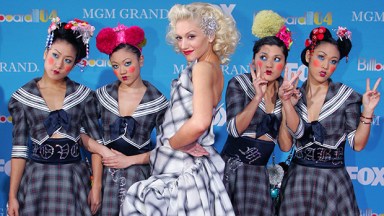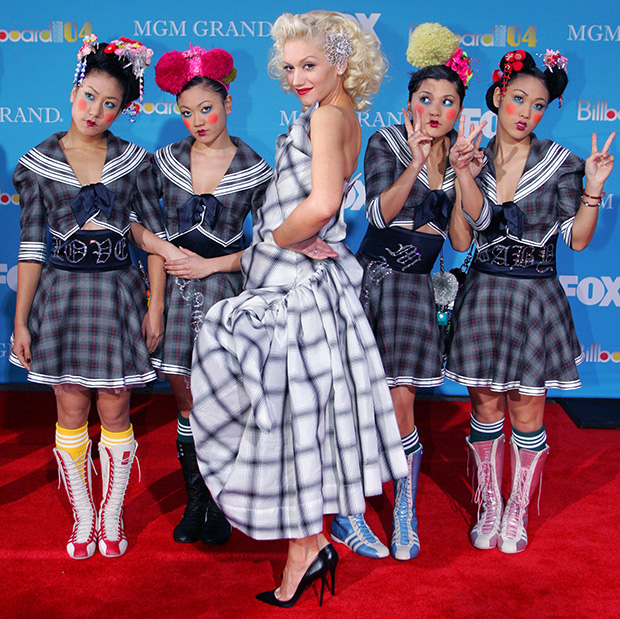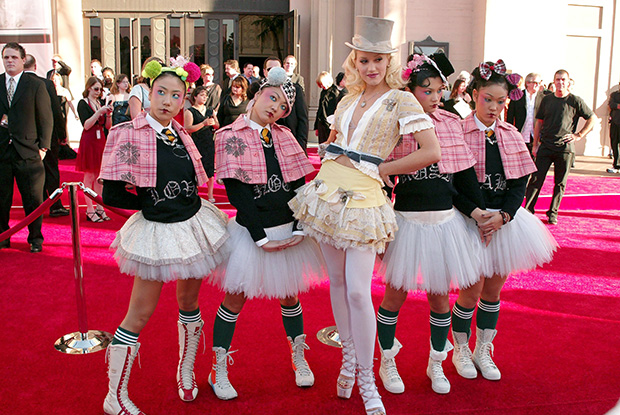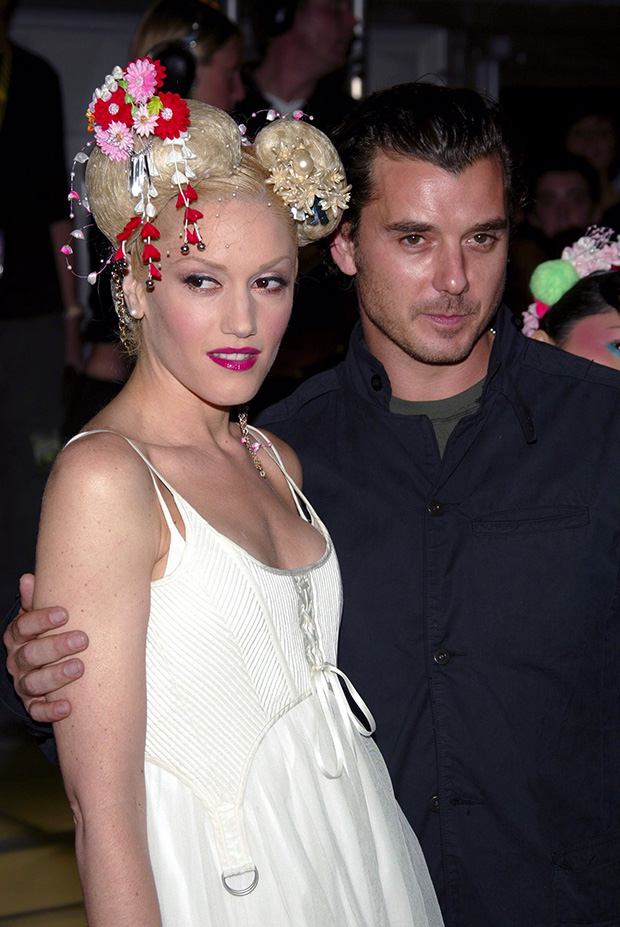
“If [people are] going to criticize me for being a fan of something beautiful and sharing that, then I just think that doesn’t feel right,” said Gwen Stefani when Allure’s Jesa Marie Calaor asked the 53-year-old No Doubt singer about her Harajuku period. When Gwen released her debut solo album (Love. Angel. Music. Baby.) in 2004, she was accused of appropriating Japan’s youth culture in her image. Plus, she toured with four Japanese-American dancers, the Harajuku Girls, who were renamed after her album (“Love,” “Angel,” “Music,” and “Baby”). When senior editor Calaor brought this up in the 2023 interview, Gwen repeated a story about her father working at Yamaha in Japan before saying how she herself was “Japanese.”
“That was my Japanese influence, and that was a culture that was so rich with tradition, yet so futuristic [with] so much attention to art and detail and discipline, and it was fascinating to me,” said Gwen. Her Italian-American father would tell Gwen about women with colorful hair and other aspects of Japanese pop culture. When she traveled to the Harajuku district in Shibuya, Tokyo, Japan, she experienced the sights for herself. “I said, ‘My God, I’m Japanese, and I didn’t know it,'” Gwen told Calaor. “I am, you know.”

“I think it was a beautiful time of creativity… a time of the ping-pong match between Harajuku culture and American culture,” said Gwen. “[It] should be okay to be inspired by other cultures because if we’re not allowed, then that’s dividing people, right?” During her interview with Gwen, writer Calaor said that Stefanit “asserted twice that she was Japanese” and once that she was “a little bit of an Orange County girl, a little bit of a Japanese girl, a little bit of an English girl.” Calaor also says that a rep for Gwen said that the Allure writer had misunderstood what Stefani was trying to say, but the fashionista’s team wouldn’t give an on-the-record clarification.

During the interview, Gwen said she identifies with Japanese culture and the Hispanic and Latinx communities of Anaheim, California, where she grew up. “The music, the way the girls wore their makeup, the clothes they wore, that was my identity,” she said. “Even though I’m an Italian American — Irish or whatever mutt that I am — that’s who I became because those were my people, right?”
Gwen spoke about this era and her song, “Harajuku Girls,” for a Love.Angel.Music.Baby 15th Anniversary retrospective with Billboard. “I wanted to write a song that talked about my love for Harajuku,” she said. “When you’re from Anaheim and never traveled outside of your city until you’re 21 years old, it was really crazy to go to Japan. My dad went there a lot because he worked with Yamaha motorcycles, so I had a fascination from a young age. When I got there and saw how fashion-obsessed they were, I thought they were my people, because my style was so unique.”

“I get a little defensive when people [call it culture appropriation],” she added, “because if we didn’t allow each other to share our cultures, what would we be? You take pride in your culture and have traditions, and then you share them for new things to be created.”

![Sean Paul is seen at "Jimmy Kimmel Live" in Los Angeles, California. 13 Jul 2022 Pictured: Sean Paul,Gwen Stefani. Photo credit: RB/Bauergriffin.com / MEGA TheMegaAgency.com +1 888 505 6342 (Mega Agency TagID: MEGA877796_006.jpg) [Photo via Mega Agency]](https://hollywoodlife.com/wp-content/uploads/2022/05/Gwen-Stefani-Pigtails-Flannel-Cowboy-Boots-MEGA-2.jpg?fit=440%2C374)
